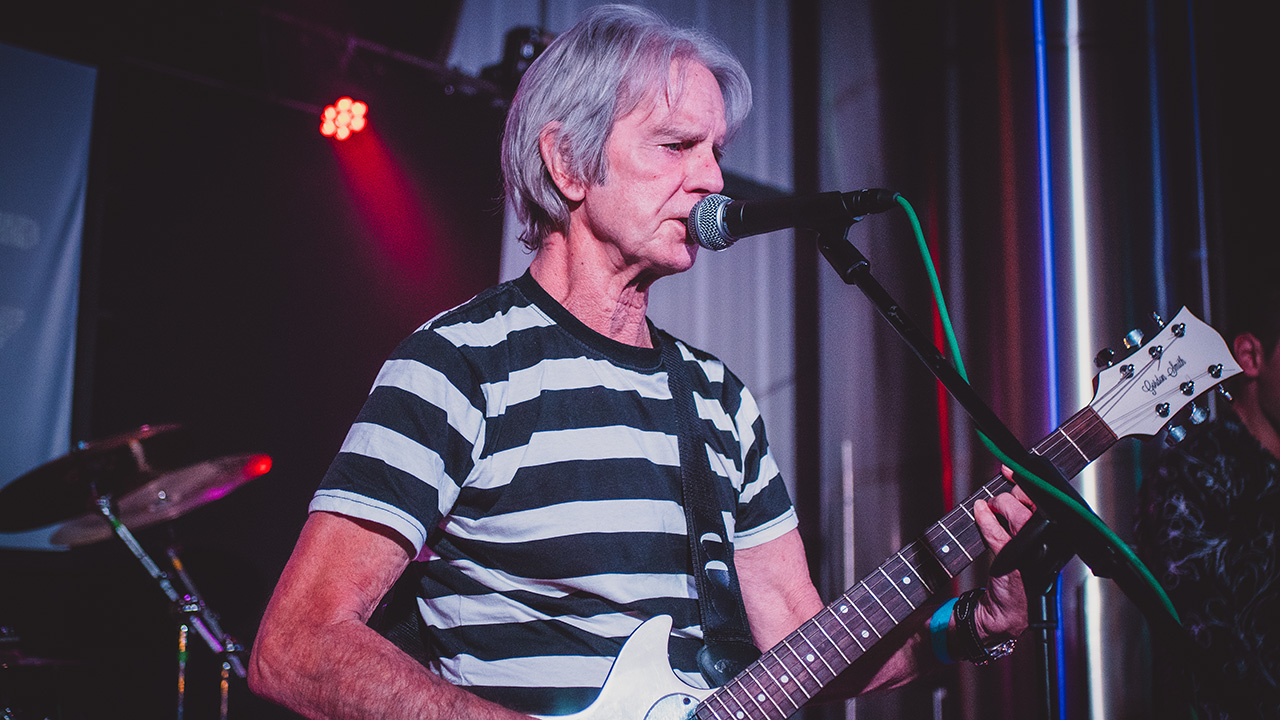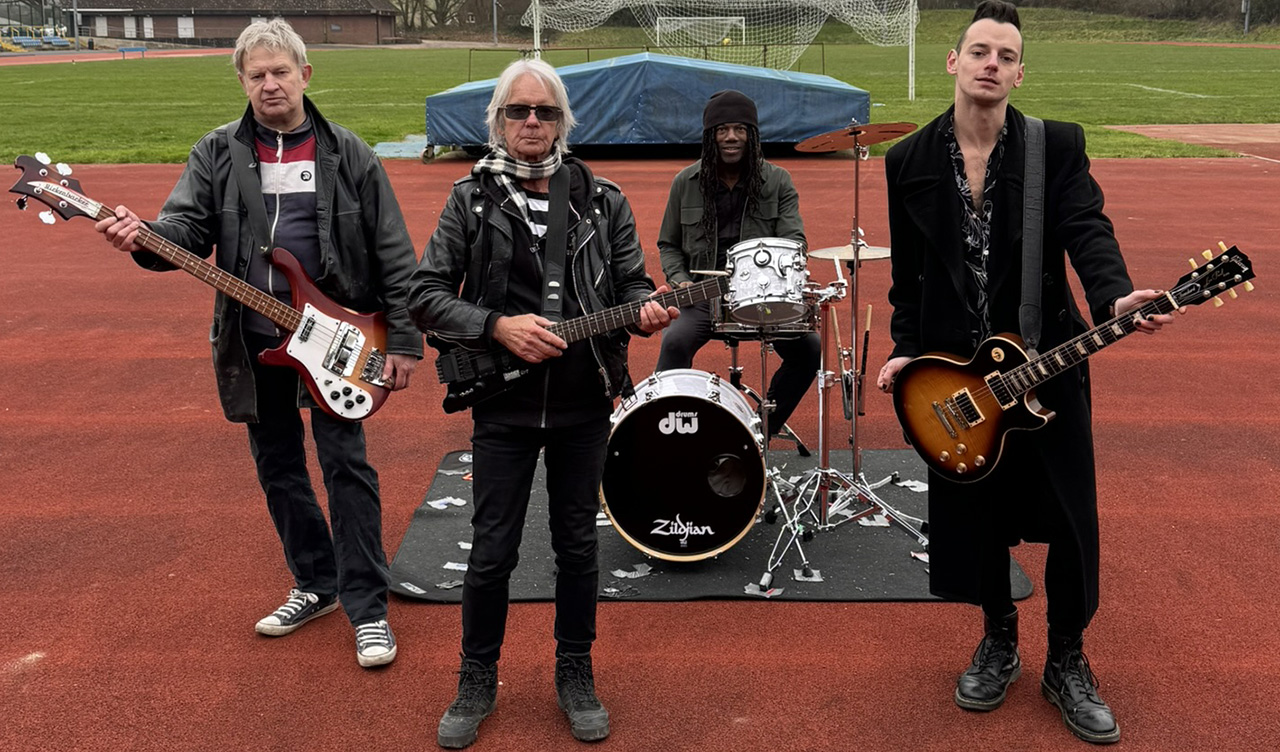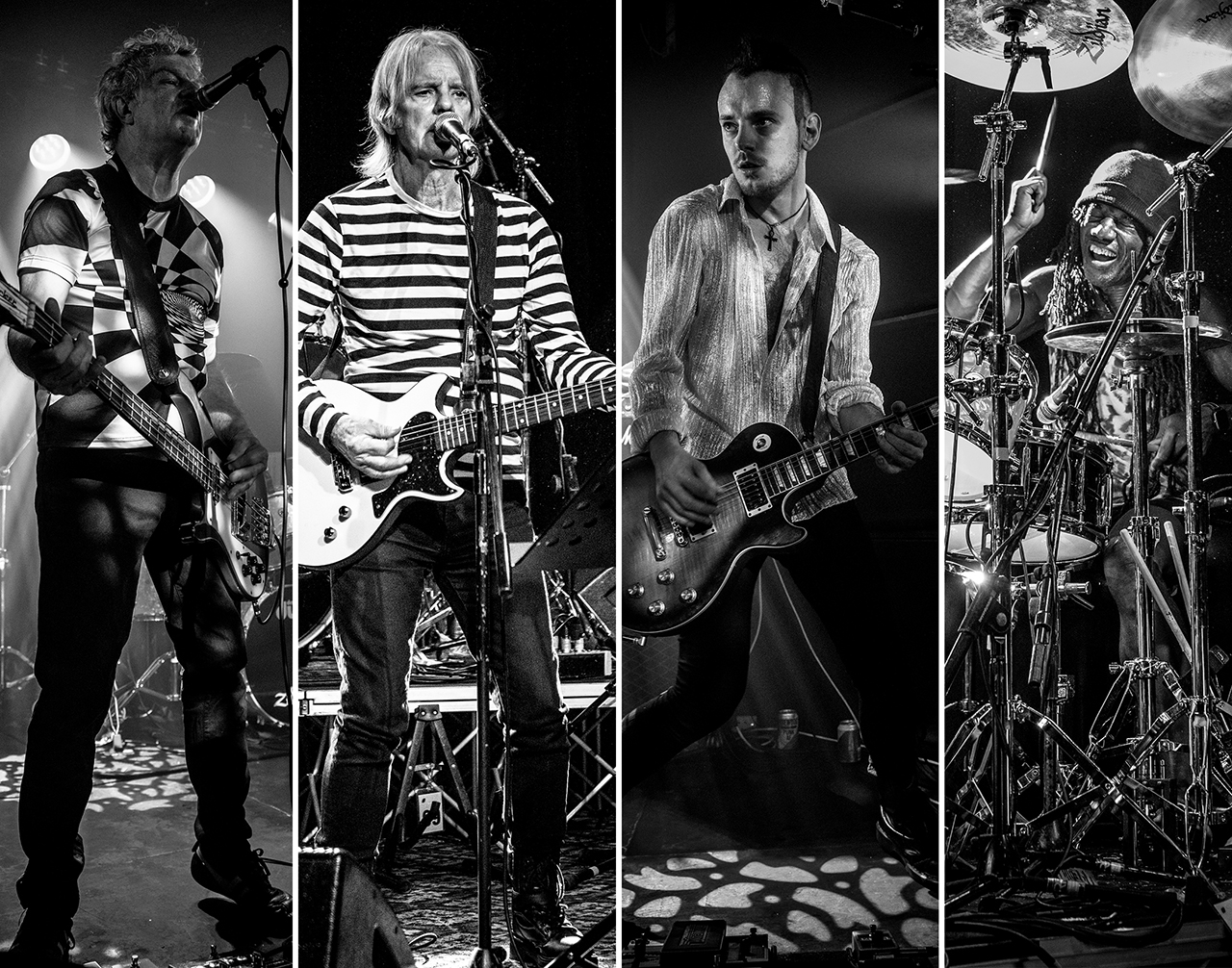“I get asked, ‘What’s it like being a one-hit wonder?’ I say, ‘It’s better than being a no-hit wonder!’” The Vapors’ hit Turning Japanese was born at 4AM, but came to life when two guitarists were stuck into the same booth
Parkinson’s disease has forced him to change his Tele for a GS1, but Fenton’s still going strong. He tells us about the dream-like, dual-guitar inception of his 1980s hit

With a Tele in hand and a 50-watt Marshall at his feet, Dave Fenton untethered one of the catchiest ‘80s songs in history – The Vapors’ 1980 hit Turning Japanese. With its slick riff and, apparent NSFW subliminal meaning, the track remains loved 45 years on.
Regarding rumors about what it’s actually about, Fenton says: “I’ve always maintained it was a love song about a bloke who’s lost his girlfriend, only has a photograph, and sits in his bedroom pining over it.”
He adds: “I think the rumors helped the song – but it also probably made it sound like a bit of a joke, so maybe people didn’t take us seriously.”
The Vapors have just released new album Wasp in a Jar, with Fenton’s son Danny playing guitar alongside him. “He fits in without any arguments. If we do have differences, everyone listens, and we work on a majority-decision basis.”
Fenton Sr. is battling Parkinson’s; he’s still able to play but the situation remains fluid. “Since I’ve been on medication it’s not quite as bad,” he reports. “I’m able to do live gigs. But it’s likely to get worse over the next three to five years. When that happens… well, if I can do it, I’ll do it.”
How would you describe your approach to the guitar these days?
“I use it as an instrument to write songs with. If I had a piano I’d use that, but I don’t. So my guitar is purely a means to an end. – an instrument to use to get what I want, which is songs.”
Get The Pick Newsletter
All the latest guitar news, interviews, lessons, reviews, deals and more, direct to your inbox!
Is it a challenge to present new music while being perceived as a one-hit-wonder?
“It’s the same as before. I just get music out so people can hear it. The good thing about writing songs is you can play them to an audience and get a reaction straight away – which you can’t do with paintings, for example.”
You’re using Gordon Smith GS1 guitars. Is that all?
“I’ve got two; one is black, one is white. I can swap them depending on how the strings are on each. Before that I had a couple of Fender Telecasters; I’ve still got those. One has a black scratch-plate, and one has a white scratch-plate, and they both have plain bodies.”
Why switch from the Tele to the GS1?
“I’ve suffered from backaches for ages. The weight of them was getting too much. The Gordon Smith was nice and light. It was a practical decision, rather than a sound-related one. I can get the sounds I want, while it was hurting to get those sounds on the Telecaster.”
Why did you choose your Orange TH30 amp?
“I wanted my sound but with something smaller and lighter than my other amps. The two-speaker Marshall jobs were fairly heavy – again, it’s a practical thing for when carting stuff around. It’s easier to carry the combo.”
Your son Danny is playing guitar in The Vapors with you now. Were you a big influence on him?
“He grew up listening, realizing that because my photo was on the back of the album, it was mine. He started learning how I played those songs. He was copying the solos from the first and second albums [New Clear Days and Magnets] and coming up with stuff similar in the third [Together] and fourth albums [Wasp in a Jar]. You can tell he’s got some really great ideas, and he fits in really well.”

How has your Parkinson’s diagnosis impacted your playing?
“Initially I was shaking and dropping things all the time. My arm would be quivering at a different speed from what I was trying to play. If I was in a rhythm part my wrist would actually freeze up. It’s better now.”
It’s been 45 years since Turning Japanese. Do you remember writing it?
“I do! I had it for a while. I’d written the verses, the bridge and the middle-eight – but I didn’t like the chorus. I was trying to find a lyric that fit over the chorus. Eventually, one night, I woke up at four in the morning, and ‘turning Japanese’ was the line in my head. I wrote it down and went back to sleep. It still worked for me in the morning, so I used it.”
Rather than doing the solo in one take with a dirty sound, the idea was to do it with a clean sound, but in 12 takes
Did you feel the song was a winner?
“I thought it was the best thing I’d written so far – so, yeah! But you never can tell. There’s too many different things to be relied upon to be able to predict hits, especially from an unknown band.”
What do you remember about tracking the guitars?
“I was using a Tele and a Marshall 50-watt amp. Vic Coppersmith-Heaven, the producer, instead of getting a dirty sound, stuck Ed Bazalgette and me in the same sound booth, so we were playing to each other identically. We did that for the solos and some of the other chord progressions.

“The solo was us playing at the same time, so that two tracks went down in one take. Then we did it again and again and again. We ended up with something like 12 tracks of the same guitar, but by the time it all came out it was dirty, fat, and full. So rather than doing it in one take with a dirty sound, Vic’s idea was to do it with a clean sound, but in 12 takes.”
What did you think the first time you listened back?
“I liked it a lot! Vic also had a hand in re-arranging the song and moving bits around, so we ended up with the Japanese motif coming three or four times rather than just once. It had started out as a rock ‘n’ roll type of thing in the demos. I had another tune that we worked over for the Japanese motif.”
The one-hit wonder perception lingers. How do you hope to be remembered?
“I often get asked, ‘What’s it like being a one-hit wonder?’ I say, ‘It’s better than being a no-hit wonder!’ What can be bad about it? People have been interested in it for 45 years. You can’t invent that, you know? You’ve got to be grateful for it – you can’t be hateful.”
- Wasp in a Jar is out now.
Andrew Daly is an iced-coffee-addicted, oddball Telecaster-playing, alfredo pasta-loving journalist from Long Island, NY, who, in addition to being a contributing writer for Guitar World, scribes for Bass Player, Guitar Player, Guitarist, and MusicRadar. Andrew has interviewed favorites like Ace Frehley, Johnny Marr, Vito Bratta, Bruce Kulick, Joe Perry, Brad Whitford, Tom Morello, Rich Robinson, and Paul Stanley, while his all-time favorite (rhythm player), Keith Richards, continues to elude him.
You must confirm your public display name before commenting
Please logout and then login again, you will then be prompted to enter your display name.



![[from left] George Harrison with his Gretsch Country Gentleman, Norman Harris of Norman's Rare Guitars holds a gold-top Les Paul, John Fogerty with his legendary 1969 Rickenbacker](https://cdn.mos.cms.futurecdn.net/TuH3nuhn9etqjdn5sy4ntW.jpg)







